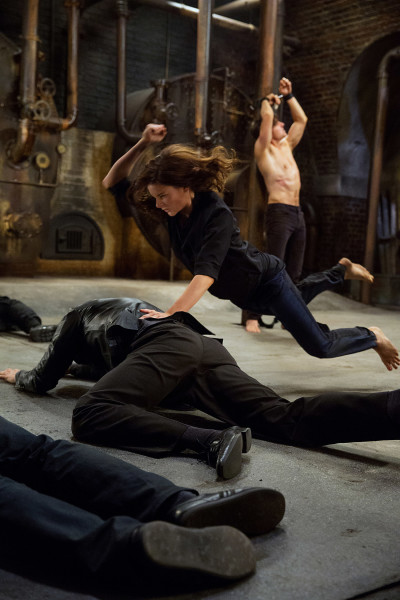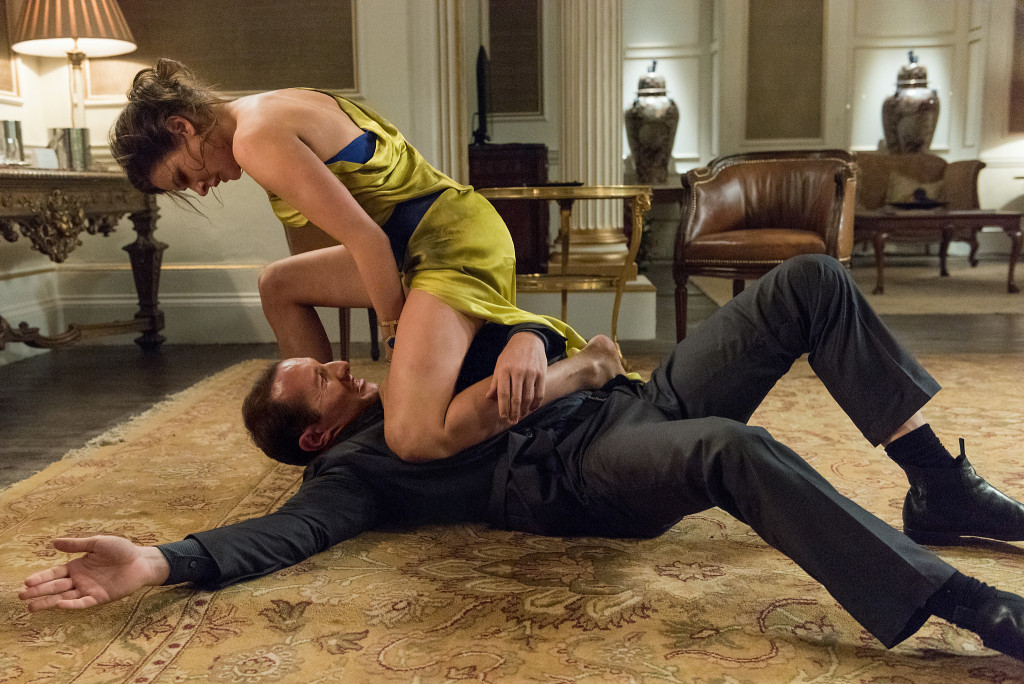Literary rating: ★★★★★
Kick-butt quotient: ☆☆☆☆½

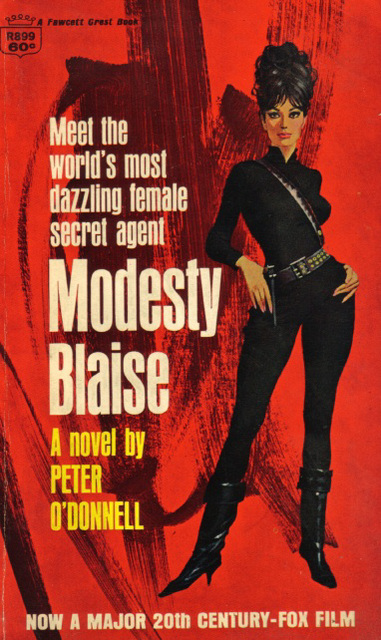 British author Peter O’Donnell created the iconic character of Modesty Blaise in 1963 as the heroine of an action adventure comic strip. He didn’t do the art work for the strip (that was done by four successive artists altogether), but he was responsible for the storylines and printed matter during the whole 38-year run, continuing until 2001. (These original strips are currently being reprinted as a series of graphic novels.) It quickly proved popular enough that 20th-Century Fox enlisted him to write a screenplay for a spin-off movie, which he did. However, he approached the character and the project seriously; and the filmmakers decided that they wanted to produce a parody of the James Bond films instead.
British author Peter O’Donnell created the iconic character of Modesty Blaise in 1963 as the heroine of an action adventure comic strip. He didn’t do the art work for the strip (that was done by four successive artists altogether), but he was responsible for the storylines and printed matter during the whole 38-year run, continuing until 2001. (These original strips are currently being reprinted as a series of graphic novels.) It quickly proved popular enough that 20th-Century Fox enlisted him to write a screenplay for a spin-off movie, which he did. However, he approached the character and the project seriously; and the filmmakers decided that they wanted to produce a parody of the James Bond films instead.
So, they brought in another writer to rework his screenplay, and ended up only keeping one sentence of it. Surprisingly, though, they asked O’Donnell, not his replacement, to do the novelization. He did –but he used his screenplay as the basis. That became the book I’m reviewing here, which was published in 1965 and sparked a long-running series of novels and stories, all with original plots distinct from those of the comic strips. (Meanwhile, the movie, with its caricature of Modesty in the main role, hit the screens in 1966, but failed to spark any fan enthusiasm comparable to what the books and comics generated.)
O”Donnell’s Modesty is a fascinating, complex and layered character, with an unusual back-story that’s provided in its basics at the beginning of this book, but fleshed out more as the tale unfolds. Born about 1939 –she doesn’t know exactly when, nor what her real name and nationality is– she was orphaned as a small child in the chaos and atrocities of World War II, and wandered alone through the Balkans and Middle East, sometimes living in refugee or DP camps. Exposed to a lot of danger and brutality, she survived against all odds because she learned to defend herself and to develop a tough, pragmatic mentality. As a tween, she was mentored by another refugee, a former university professor (whom she protected, rather than the other way around) who taught her a great deal; intelligent and gifted with a good memory, she’s well-educated as a result.
Winding up in Tangier at 17, she soon succeeded to the leadership of a criminal gang, and built it into a substantial international organization, the Network, that engaged in art and jewel thefts, currency manipulations, smuggling, and intelligence brokering. She did NOT, however, engage in drug or sex trafficking (and sometimes provided the authorities with tips that enabled them to bust drug operations); her criminal activities violated the law, but never her own personal moral code and sense of honor. (It was during her Network days that she forged her abiding friendship with Willie Garvin, a skilled knife-fighter whose life had pretty much hit bottom until she saw his potential and recruited him; he would become her lieutenant and faithful sidekick.) Having amassed her goal of half a million pounds sterling by the time she was about 25, she turned the Network over to its regional bosses and she and Willie (also wealthy by that time) retired to a quiet life in England.
The book opens about a year later, when she’s bored and restive, increasingly aware that she’s psychologically geared to find fulfillment and purpose in high-risk physical action, and doesn’t feel really alive when she’s vegetating without it. At this point, she’s approached by Sir Gerald Tarrant, head of British Intelligence (who did business with her, through Willie, when she was brokering items of information that interested the British government). As partial payment to a Middle Eastern sheik for an oil concession, Britain is shipping ten million pounds worth of diamonds from South Africa to Beirut –and there are rumors that the secrecy of the shipment has been compromised, and that someone may be out to steal it. Being aware of Modesty’s unique wide knowledge of, and contacts in, the international underworld, Tarrant would like her to check this out for him. First, though, she’ll have another priority on the agenda –rescuing Willie (also bored and restive) from the South American prison where he’s awaiting execution, having been a mercenary on the losing side in a civil war.
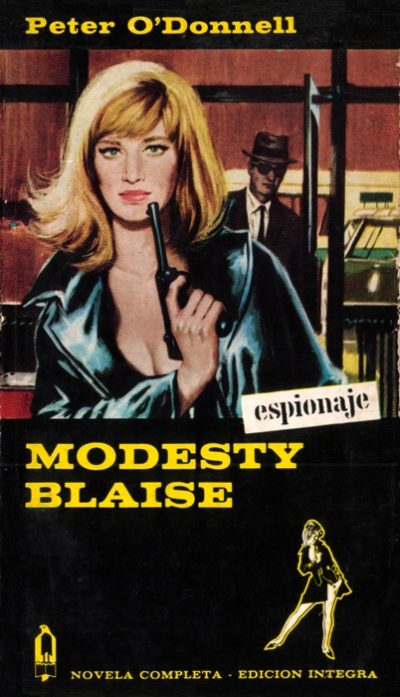 O’Donnell is a master of characterization; not just Modesty and Willie, but all of the secondary characters here too, are wonderfully wrought, full-orbed and realistic. The plotting is taut and well-paced, with no unnecessary filler, and there’s a real sense of danger and challenge. It’s clear that the author has a very good working knowledge of traditional Arab culture, which adds texture here. Unlike Ian Fleming, he doesn’t go in for far-fetched gadgetry, but he does endow his heroine and hero with some believable gadgets and an ability to secrete them on their person. He writes action scenes that are clear, vivid and gripping; and he sets his action in the context of a moral framework –recognizable good is pitted here against genuine evil, and O’Donnell makes us root wholeheartedly for the former and despise the latter. Modesty herself is no plaster saint; I didn’t approve of everything she’s done in her life, or every aspect of her lifestyle now. But I could understand her motivations, and didn’t have any trouble liking and respecting her as a heroine –she has a lot of very real virtues, is a born leader and as valiant a fighter as ever lived, cares about others and treats them decently, and respects innocent life (and will spare adversaries’ lives at times when some people in her shoes probably wouldn’t).
O’Donnell is a master of characterization; not just Modesty and Willie, but all of the secondary characters here too, are wonderfully wrought, full-orbed and realistic. The plotting is taut and well-paced, with no unnecessary filler, and there’s a real sense of danger and challenge. It’s clear that the author has a very good working knowledge of traditional Arab culture, which adds texture here. Unlike Ian Fleming, he doesn’t go in for far-fetched gadgetry, but he does endow his heroine and hero with some believable gadgets and an ability to secrete them on their person. He writes action scenes that are clear, vivid and gripping; and he sets his action in the context of a moral framework –recognizable good is pitted here against genuine evil, and O’Donnell makes us root wholeheartedly for the former and despise the latter. Modesty herself is no plaster saint; I didn’t approve of everything she’s done in her life, or every aspect of her lifestyle now. But I could understand her motivations, and didn’t have any trouble liking and respecting her as a heroine –she has a lot of very real virtues, is a born leader and as valiant a fighter as ever lived, cares about others and treats them decently, and respects innocent life (and will spare adversaries’ lives at times when some people in her shoes probably wouldn’t).
At one point, O’Donnell makes use of a double coincidence in his plotting, which some critics might fault him for. (But that personally didn’t bother me much; I ascribed it to the action of providence.) And while he drops the names of various firearms models to lend verisimilitude to his narrative, he makes a couple of bloopers in his treatment of guns. Also, he describes technical processes at places in the narrative in more detail than I would (I have a low tolerance for that kind of thing), but he usually has a good reason to, and does it with reasonable clarity; some fans will actually regard this as a strength of the writing. One major character displays some sexist attitudes, but I didn’t think O’Donnell was sharing in or justifying them, just realistically depicting the way many males in 1965 thought (and still do).
There’s a high body count here, but the violence is handled quickly and cleanly; while some of the villains are sadists, O”Donnell isn’t. There’s some bad language, and a certain amount of religious profanity, but no obscenity. While there’s no explicit sex, it’s made clear that unmarried sex took place a few times, and will again; Willie and Modesty are single, but not celibate. (Their relationship with each other, though, is perfectly chaste and Platonic –they genuinely do love each other, and would die for each other, but as true friends, not as erotic partners.)
In this book, it’s noted in passing that Modesty has been raped twice in her life. As it stands, that’s just a reflection of the tragic fact that women in our world often do face a lot of sexual violence; and she isn’t defined by the experience, and doesn’t have a victim mentality that allows it to permanently scar her life, which is positive modeling. But I’m told by other readers that in the other books of the series (though not the comics) Modesty tends to be raped quite frequently. To me, that’s a disturbing amount of sexual violence for one character to have to undergo; and it does seem like a morbid overuse of the motif. But that said, I’m still invested enough in this heroine and her future adventures to continue reading the series!
Author: Peter O’Donnell
Publisher: Souvenir Press, available through Amazon, currently only as a printed book.
A version of this review previously appeared on Goodreads.





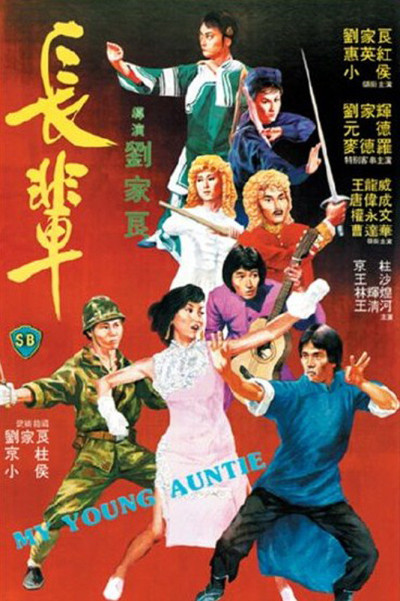
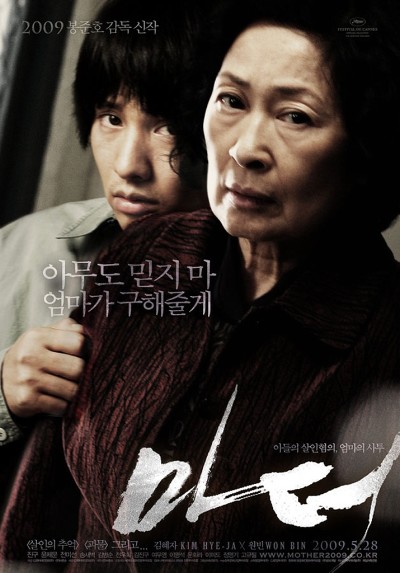
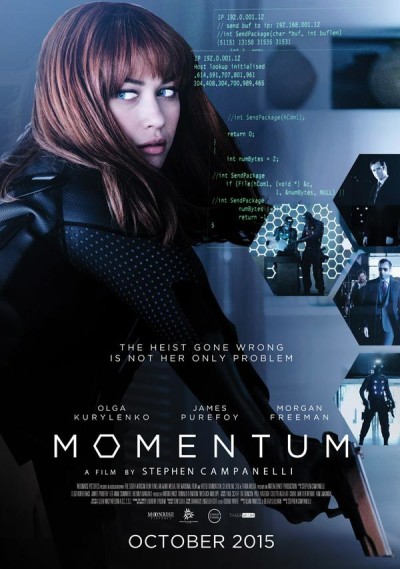
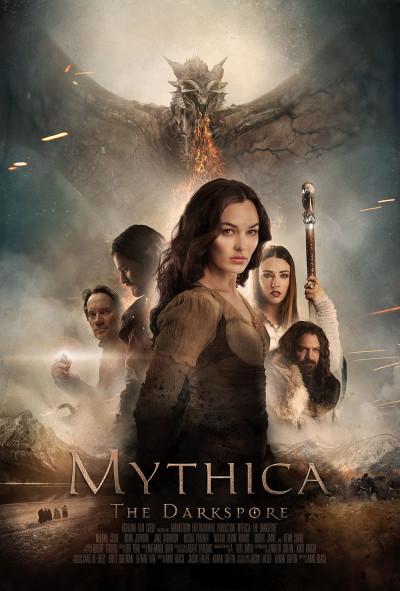
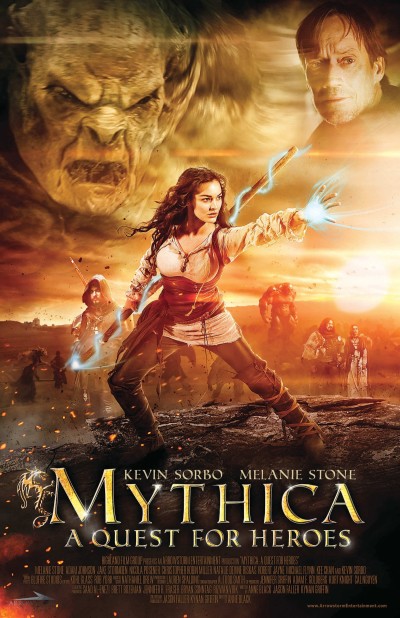
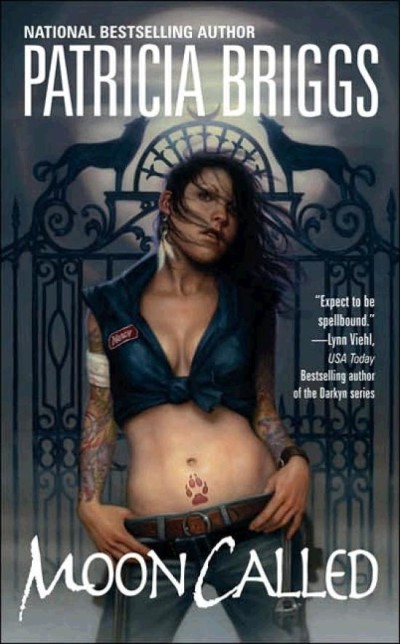
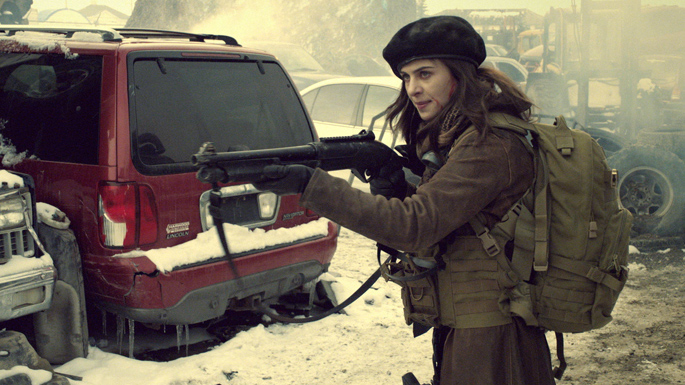
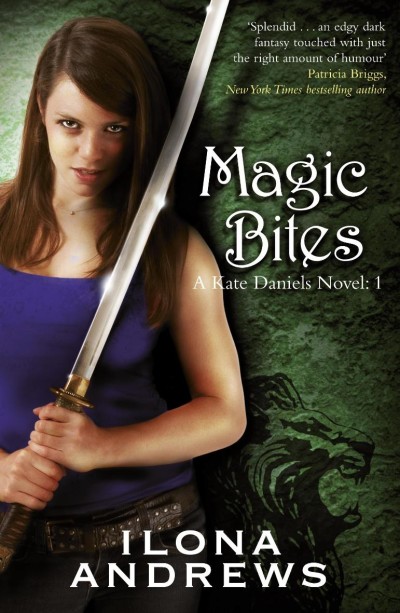 “Ilona Andrews” is the pen name of a husband-and-wife author team; her first name really is Ilona. (There’s some confusion about his; “About the Authors” in the edition I read gives it as Andrew, but a comment in the extra material uses Gordon, as does the author page on Goodreads. Possibly Andrew Gordon?) They’ve attained considerable success with their urban fantasy Kate Daniels series. Since I’m a fan of both supernatural fiction and strong, kick-butt heroines, it isn’t surprising that the series had been on my radar for a long time before I read this opening volume, as a buddy read with a friend. It didn’t disappoint!
“Ilona Andrews” is the pen name of a husband-and-wife author team; her first name really is Ilona. (There’s some confusion about his; “About the Authors” in the edition I read gives it as Andrew, but a comment in the extra material uses Gordon, as does the author page on Goodreads. Possibly Andrew Gordon?) They’ve attained considerable success with their urban fantasy Kate Daniels series. Since I’m a fan of both supernatural fiction and strong, kick-butt heroines, it isn’t surprising that the series had been on my radar for a long time before I read this opening volume, as a buddy read with a friend. It didn’t disappoint!
